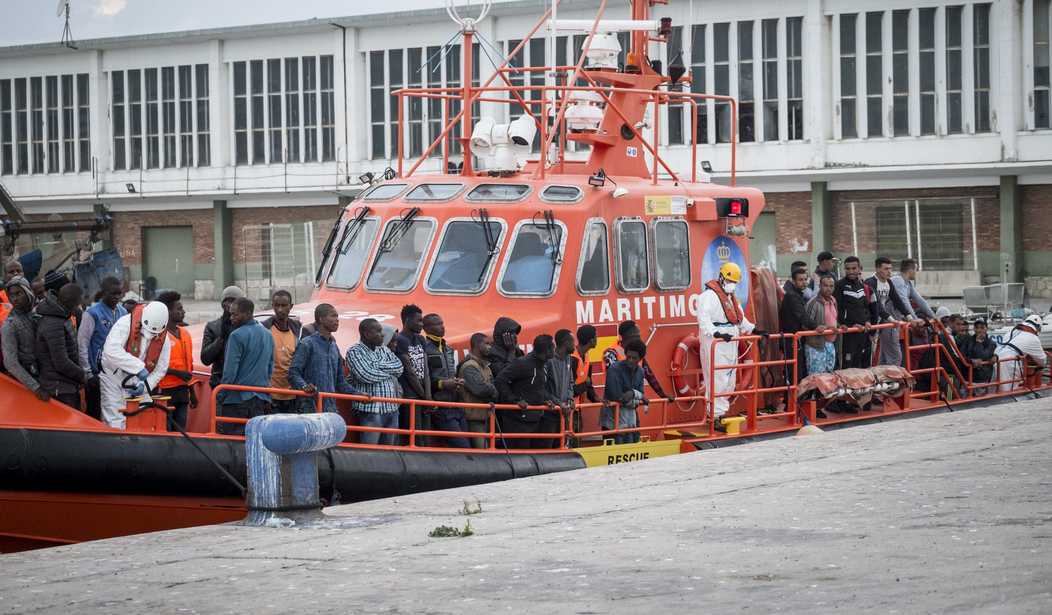A new United Nations report says that deaths of refugees trying to flee across the Mediterranean to Europe rose last year due to a decreased search-and-rescue response and “an uncoordinated and unpredictable response to disembarkation” at intended landing points.
An estimated 2,275 people, an average of six per day, were confirmed drowned or went missing in the Mediterranean in 2018.
At the same time, the refugee and migrant wave into Europe was at its lowest point in five years: 139,300 successfully made the journey, with 65,400 landing in Spain, 50,500 landing in Greece, and 23,400 landing in Italy. Spain became the main entry point later in the year, the report from the United Nations High Commissioner for Refugees said, and deaths nearly quadrupled along that route compared to 2017.
The shift in routes came as migrants have been increasingly trying to get around the area of influence of the Libyan Coast Guard, which stepped up operations last year and detained people intercepted at sea in “appalling conditions.”
For those who crossed from Libya to Europe, the death rate from one person in every 38 arrivals in 2017 to one person in every 14 arrivals in 2018.
“On several occasions, large numbers of often traumatised and sick people were kept at sea for days before permission to disembark was granted, sometimes only after other states had pledged to relocate the majority of those who had been rescued,” the report said. “By the end of the year, this situation had not been resolved despite UNHCR’s and IOM’s continuous call to establish a predictable regional disembarkation mechanism in the Mediterranean Basin.”
Other migrant and refugee trends that began last year include about 24,100 recorded as arriving in Bosnia and Herzegovina as migrants tried the Balkans route.
Last year, 136 refugee and migrant deaths were recorded along land routes into Europe, a jump from 75 the previous year. Nearly 25,000 people were resettled in Europe.
The report called on countries to “stop apprehending and returning thousands of people to neighbouring countries without allowing them to seek asylum or assessing individually whether they have international protection or other humanitarian needs – a practice known as “push-backs” – as well as to greatly step up efforts to protect children – accompanied or alone – and to provide support for survivors of sexual and gender-based violence, as well as better access to safe and legal pathways as alternatives to these dangerous journeys.”
“We can put an end to these tragedies by having the courage and vision to look beyond the next boat, and adopt a long-term approach based on regional cooperation, that places human life and dignity at its core,” UN High Commissioner for Refugees Filippo Grandi said in a statement.









Join the conversation as a VIP Member